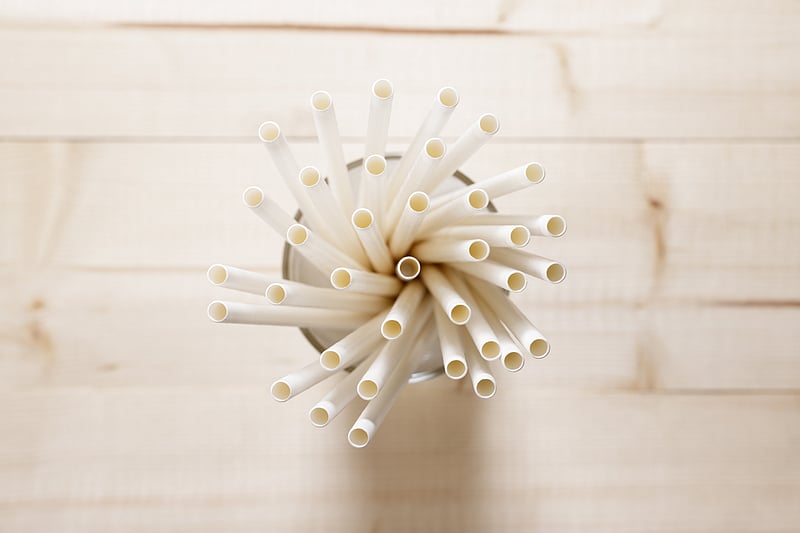Get Healthy!

- Cara Murez
- Posted August 25, 2023
'Eco-Friendly' Paper Straws Contain Harmful PFAS Chemicals
Paper straws, meant to be an eco-friendly alternative to plastic, may not be better for the environment, a new study concludes, warning that they also contain "forever chemicals"that can harm human health.
"Straws made from plant-based materials, such as paper and bamboo, are often advertised as being more sustainable and eco-friendly than those made from plastic,"said researcher Thimo Groffen, an environmental scientist at the University of Antwerp in Belgium. "However, the presence of PFAS in these straws means that's not necessarily true."
For this study, published Aug. 24 in the journal Food Additives and Contaminants, Groffen and colleagues tested 39 straw brands in a variety of materials for poly- and perfluoroalkyl substances (PFAS).
Straws were paper, bamboo, glass, stainless steel and plastic. Each straw went through two rounds of testing for PFAS.
PFAS were found in 69% of the straws. Testing detected 18 different PFAS.
These chemicals were found in 90% of paper straws; about 80% of bamboo straws; 75% of plastic straws, and 40% of glass straw brands.
PFAS were not detected in any of the five types of steel straws tested.
The most commonly found PFAS was perfluorooctanoic acid (PFOA), which has been banned worldwide since 2020.
Testing also detected trifluoroacetic acid (TFA) and trifluoromethanesulfonic acid (TFMS). These "ultra-short-chain"PFAS are highly water soluble and so might leach out of straws into drinks, according to the study.
These all may pose limited risk to human health because people tend to use straws only occasionally and chemical concentrations were low, researchers said. But the chemicals can build up in the body for years.
"Small amounts of PFAS, while not harmful in themselves, can add to the chemical load already present in the body,"Groffen said in a journal news release.
It's not known if the straws contained the PFAS to waterproof them or because of contamination from soil used to grow materials or water used in manufacturing.
PFAS are used in many everyday products, including nonstick pans and outdoor clothing. They make these items resistant to water, heat and stains, but break down very slowly over time and can persist in the environment for thousands of years.
They're associated with health problems, such as lower response to vaccines, lower birth weight, thyroid disease, increased cholesterol levels, liver damage, kidney cancer and testicular cancer.
A recent U.S. study found PFAS in plant-based drinking straws as well. While some countries have banned single-use plastic products, plant-based alternatives have become popular.
Researchers said the prevalence of PFAS in the straws suggests they were added as a waterproof coating.
"The presence of PFAS in paper and bamboo straws shows they are not necessarily biodegradable,"Groffen said. "We did not detect any PFAS in stainless steel straws, so I would advise consumers to use this type of straw -- or just avoid using straws at all."
More information
The U.S. Food and Drug Administration has more on PFAS.
SOURCE: Food Additives and Contaminants, news release, Aug. 24, 2023
